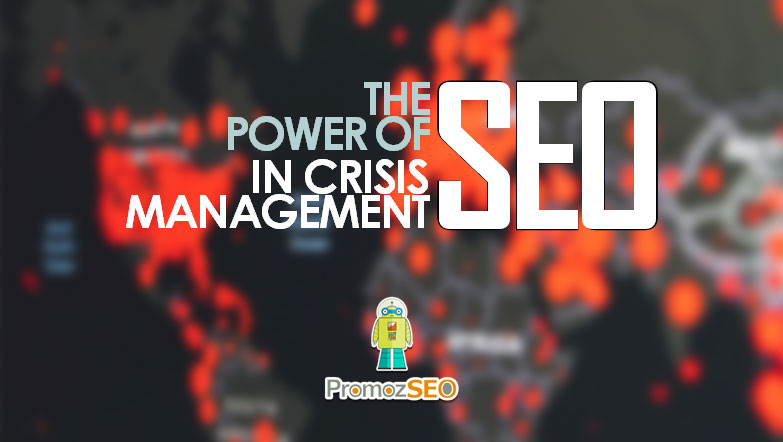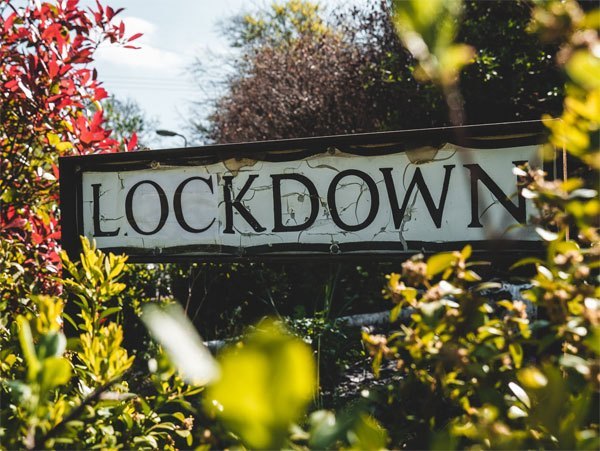The Power of SEO in Crisis Management and Counteracting Negative Online Content

The world may be in crisis mode thanks to the current pandemic, but that doesn’t mean your company’s reputation should be. Right now, it’s important to continue with your digital marketing efforts, including your search engine optimization (SEO). These will all assist you greatly should your business have to counteract a crisis that has to do with your reputation.
The moment a crisis hits, your company will automatically start to lose a share of the rankings and voice online. News articles, social media, and review websites will take a portion of this. How much they take will depend on how quickly you react and how strong your SEO efforts truly are. The problem you are combating is that the public loves a scandal or a David and Goliath story. Because of this, the negative press will likely gain traction very quickly, and the longer you leave those stories up top of the rankings online, the harder it’ll be for you to gain authority over the keywords again.
The good news is, if you react quickly with a proper SEO and PR strategy that works together, you can overcome any crisis. It’s just a new way of thinking to combine your SEO strategy with the strategy you use for PR in order to create a well-rounded message that boosts your company’s profile in a positive way. Essentially, you are using SEO as a type of digital PR.
The benefits of focusing on SEO in a crisis are numerous, including:
Your Message Online Remains Consistent
A calm head in a crisis is always something that will help you come out the other side still strong. It always used to be the case that the top executives of the company would be the voice of authority and control for a business that is under attack. But now, part of that voice needs to be online in the form of your website content, news articles, and social media messaging. A chief executive officer giving a real-world press conference on the front steps of your place of business to the traditional media will not ensure that your message spreads the way it needs to.
With an SEO strategy that combines with your PR for handling the crisis, that same message will be reflected on your social media profiles, on your website and seeded on as many independent and trustworthy sites as possible. In other words, your regular SEO tactics will work for you to ensure that the message you want to spread about the crisis is the message people see when they search for your company online.
These efforts will keep your company message as consistent as possible between the real world and the online world. This consistency is also crucial to ensure you retain your authority when it comes to your industry and your company in the eyes of Google and the other search engines. This is the same authority that you’ve worked so hard to gain through your ongoing SEO efforts in order to get you onto the top of the search results.
You Keep Your Authority on the SERPS
The longer content stays unanswered online, the more authority it will gain on the search engine results pages (SERPs). A news article or a negative review on one of those brand reputation sites has the added benefit that it could get shared on social media and linked to other news sites and blogs as the public spread the word about your company. This will create a number of strong backlinks that the likes of Google will interpret as giving the original negative post authority on your company’s keyword.
In order to combat this, you need to get in quickly with something that can counteract the negative story on the same keywords. If your SEO on your website is already strong, you can use this history of your website to your advantage. Google will already see your site as an authority on topics relating to your company and give your blog post or news articles you seed a top spot.
Through continuous efforts to promote your message of apology or setting the record straight – whatever is necessary for the specific crisis – you can push the negative articles or reviews down the rankings and hopefully off of page one of the SERPs. The trick is to make sure you know what keywords the bad publicity is ranking for and attack all of them in your SEO efforts. Just focusing on one keyword or your company name will not be enough to counteract the negative impact on your online reputation.
The Narrative Becomes Yours to Control
The digital world really is a great space for telling a story. That’s what people want; a narrative that tells them what brands to trust or websites to visit. It’s not traditional storytelling, but SEO is a version of it. Through the use of keywords on each page of your website and carefully crafted content and metadata, you are telling the search engines that your pages are worth visiting. Once you are telling a story that the likes of Google finds appealing, you will get your website in front of the right people – your customers.
This is why controlling the narrative of your company online is so important. When you react positively and proactively to a crisis through your digital marketing and SEO, you keep hold of the reigns of your company’s story. This is because you have assessed how people are finding the negative mentions of you, used those keywords to create your own content that is newer than the original complaint or accusation, and pushed the original posts down the rankings on the SERPs. You also did this quickly and efficiently, before the negative comments took root and became regarded as an authority on the topic by the search engines.
You can even use the negative articles or reviews to your advantage by commenting on the posts and linking back to your website. If there is a negative story on a trusted news website or a bad review has been posted online, you can use the authority that those sites have to boost the backlinking on your website. This will also have a positive impact on your overall rankings, and it will help you to address the complaint at the source so that your target audience sees your response. It’s good PR and good SEO.
5 Ways to Counteract Negative Online Content in A Crisis Through SEO
There’s no point in waiting for a crisis to appear before you start preparing for one. Put together a strategy for dealing with a problem through SEO today, and you’ll be ready if or when one crops up. It’s quite simple to do; just follow these four steps:
- Know your areas of concern – It’s naïve to think that your company has no points that aren’t secure and completely stable. If you’re interacting with customers, you can never be completely sure that you have covered your basis in terms of the full service or the product you offer, as well as managing your customer service side. By recognizing where you could potentially fall short, or someone external could conceivably have an issue, you can begin to formulate plans for how to combat a crisis, should one appear. It’ll also help you to better cover yourself and improve any areas of concern before they become a problem. This is an ongoing endeavor and should be revisited regularly.
- Ensure your website is properly indexed and ranking – It’s no good to turn to SEO after a problem occurs. That’s like shutting the stable door after the horse has already bolted. If you haven’t already got an SEO strategy in place and constantly running on your website, then it’s time to start right now. The first port of call should be to look at the basics on each page, such as metadata and proper structure. Then, check to see if your pages are indexed by Google and the other search engines and how your various web pages are ranking. Once you have a baseline in place, you can start your keyword research and begin deploying a full SEO strategy. You may want to consider hiring external help for this because it is an ongoing and often full-time endeavor to keep up with changes to search engine algorithms and constantly manipulating your website and tweaking your strategy to stay on top of the SERPs.
- Keep an eye on your social mentions – Online reputation management (ORM) is another critical element to SEO and digital marketing. It’s the practice of monitoring all of your mentions on social media, third-party websites, and in the news, and then gauging the overall sentiment of your brand’s reputation. There are plenty of tools available to help with this so that you don’t have to keep doing online searches all day, every day. It’s also incredibly helpful because you can monitor trends in your reputation and catch a swing towards negative very quickly, which will give you time to react in the right way and before a situation gets out of hand.
- Directly respond to negative comments – There’s no better PR tactic than meeting a problem head-on and responding to someone in the space where they feel comfortable. If there is a bad review on a third-party platform, go there and reply to the review. You can use the space to acknowledge that the complaint is being heard and ask the person if they would like to discuss the issue or concern further. The end result you’re aiming for is that the person complaining changes their mind through a thoughtful interaction with your company, and they update the review to something positive. Of course, all of this also works in your favor for SEO purposes because you are creating a backlink to your website from a trusted third-party platform. If needed to respond on a wider scale, consider sending out a press release to address concerns through many outlets at once.
- Blog using the relevant keywords – Before a crisis hits, you should already have the areas of concern that you feel could be where your company is at risk of receiving complaints. You can then look for relevant keywords about these areas and begin using them in blog posts on your own website or as guest posts on other platforms. This will give you the authority on those keywords in the eyes of the search engines because you have been using them for a while. Then, when you need to use them for an actual crisis, it is natural that they come up in your blog content.
It’s important to keep a cool head when a crisis hits. Having a strategy for dealing with it on all fronts is the best way to help you keep calm and to come out the other side stronger. It’s also important not to forget any elements of your company’s reputation and where it can be attacked when dealing with a crisis. An SEO strategy will help you get through it.
About the Author
This article is written by Bibi Raven, a content extraordinaire at Linkody.
An advanced All-in-One Digital Marketing Course.
Mentored by Mr. Soumya Roy, the Founder, CEO of PromozSEO Web Marketing Academy.
- Reasons Your Business Needs to be on Instagram - September 16, 2021
- 7 Reasons Your Business Should Invest in Professional Content Creation - August 12, 2021
- 5 Ways You Can Improve Your Website’s Existing Backlinks - April 30, 2021






